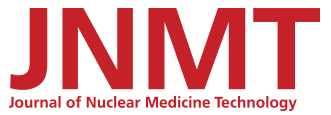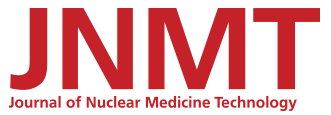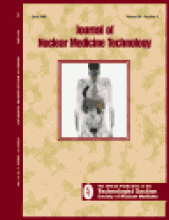
Competency is a term that is used routinely in both professional and educational circles and yet remains one of those notions fraught with ambiguity. We all feel we know what it means when someone is said to be competent, but we may not all agree on what specific characteristics define a competent person. The assessment of competent performance is the subject of much debate. What behaviors or traits can and should be measured? If we are concerned about assessing professional competence, who should be responsible for conducting this evaluation? As a director of the Nuclear Medicine Technology Certification Board (NMTCB) Executive Board, I’ve had the opportunity to become involved in many discussions with staff technologists, educators, and administrators pertaining to the subject of competency. One question that comes up time and again is, “How can the NMTCB ensure that CNMTs are competent professionals?” The unsatisfying answer I must give in response to this question is simply, “It cannot.” The reasoning behind this answer makes up the remainder of this column.
If one researches the literature on competency and its measurement, one would find that the concept is thought to be both dynamic and multifaceted. Most scholars agree that competency is not a dichotomy (that a person is either competent or incompetent) but rather a fluid continuum from incompetence to competence and that any given individual may be more or less competent at one point in time relative to another. Competence has also been proven to be domain specific. Competency in one area does not necessarily lead to competency in another. The literature also suggests that assessing whether or not someone is performing competently would involve looking at several complex, interacting variables. Two of the best analyses I have found that try to identify what these parameters might be are James Shanteau’s Theory of Expert Competency (1,2) and the Secretary’s Commission on Achieving Necessary Skills (SCANS) report (3).
Shanteau maintains that the competency continuum runs from being a naïve performer or decision-maker through being a novice to eventually becoming an expert. His research focused on the differences between novices and experts. He found that the skills and abilities that emerge or do not emerge in experts depend on a few basic factors: domain knowledge, psychological traits, cognitive skills, and task characteristics. Shanteau contends that having a grasp of domain knowledge is a prerequisite for being an expert (1). This knowledge not only represents textbook knowledge, but also the insight gained from experience. He goes on to say that although domain knowledge is necessary, it is not sufficient for expert competency. Having the knowledge needed to perform competently does not ensure that one will indeed perform competently. Experts differ from novices not only in how much information they can recall, but also in how they use the information. Shanteau believes that to perform competently, one must also have the right cognitive skills and psychologic makeup (2). The cognitive skills he refers to are those generally thought to be god-given and fairly unmalleable (e.g., linguistic, spatial, and mathematic intelligence), or developed through extensive experience (e.g., highly developed attention abilities, a sense of what is relevant, the ability to identify exceptions to the rule, and the capacity to work effectively under stress). Another factor, which Shanteau claims is often overlooked, is the characteristics of the task itself (1). Job tasks will vary from profession to profession and can vary widely within any specific occupation. Some tasks will always require focused attention, others may become fairly automated. It has been found that even experts can perform poorly when a task deals with dynamic stimuli, unpredictable outcomes, and human behavior.
The SCANS study, commissioned by then U.S. Secretary of Labor Elizabeth Dole in the latter part of the 1980s and published in 1991, was designed to determine which skills people need to succeed in the working world (3). The results of this study identified that, in general, competent workers not only need “foundation skills” such as basic literacy and computational abilities, they must also have some specific personal qualities. These qualities include individual responsibility, self-esteem, sociability, self-management, and integrity. Sociability was defined as having the ability to demonstrate understanding, friendliness, empathy, and politeness in group settings. The report also identified five separate but interacting domains of workplace competency. The researchers maintained that these competencies are more closely related to what people actually do at work than are the foundation skills. The five competency domains are Resources (identifying, organizing, planning, and allocating time, money, materials, and workers); Information Skills (acquiring and evaluating, organizing and maintaining, and interpreting and communicating information); Technology Utilization Skills (selecting technology, applying technology to a task, and maintaining and troubleshooting technology); Systems Skills (understanding complex interrelationships, knowing how social, organizational, and technological systems work and operating effectively with them, monitoring and correcting system performance, and designing or improving systems); and Interpersonal Skills (contributing to group effort, helping others learn, working to satisfy customer expectations, exercising leadership by communicating ideas to justify a position, persuading and convincing others, responsibly challenging existing procedures and policies, working toward agreements involving exchange of resources, and working well with individuals with diverse backgrounds). In his article The SCANS Report Revisited, William Huitt suggests that, based on the findings of behavioral science and the writings of futurists, some affective and volitional competencies should be added to this list (3). The affective competencies include the ability to be autonomous, benevolent, compassionate, courageous, and courteous. Volitional competencies include character traits such as ambition, self-determination, willingness to constantly upgrade skills and adapt to change, and alertness to new ideas, fashions, customer preferences, and economic and political changes.
To work competently in the field of nuclear medicine, all of these factors come into play. Both Shanteau’s work and the SCANS study conclude that it is impossible to train a worker to have some of the characteristics associated with expert performance (2,3). No amount of acquired knowledge can guarantee that a person who does not already possess these personal qualities will attain them. The NMTCB is a certification agency. Its mission is to provide written examinations designed to assess whether or not a candidate has a grasp of the knowledge base necessary to perform at an entry-level competency. It should be clear that an examinee’s score on the NMTCB (or any other certification examinations for that matter) can only provide a piece of the competency puzzle. The entry-level examination measures entry-level understanding at the time the examination was taken. It cannot ensure that a candidate possesses the attitudes, values, work ethic, or interpersonal skills necessary to continually perform competently in the ever-changing patient-centered field of nuclear medicine technology. Assessing employee competence must remain a responsibility shared by many. The certification agencies, professional associations, employers, and the employees themselves all have a role. When all is said and done, only those close enough to the situation to directly observe, for extended periods of time, the behavioral traits and professional skills of a technologist can verify whether or not a person is a competent CNMT.
CONTACT US
For further information on the NMTCB and its activities, please visit our Web site at www.nmtcb.org or contact the NMTCB office at: NMTCB, 2970 Clairmont Rd., Suite 935, Atlanta, GA 30329-1634; phone (404) 315-1739; e-mail: board{at}nmtcb.org.







